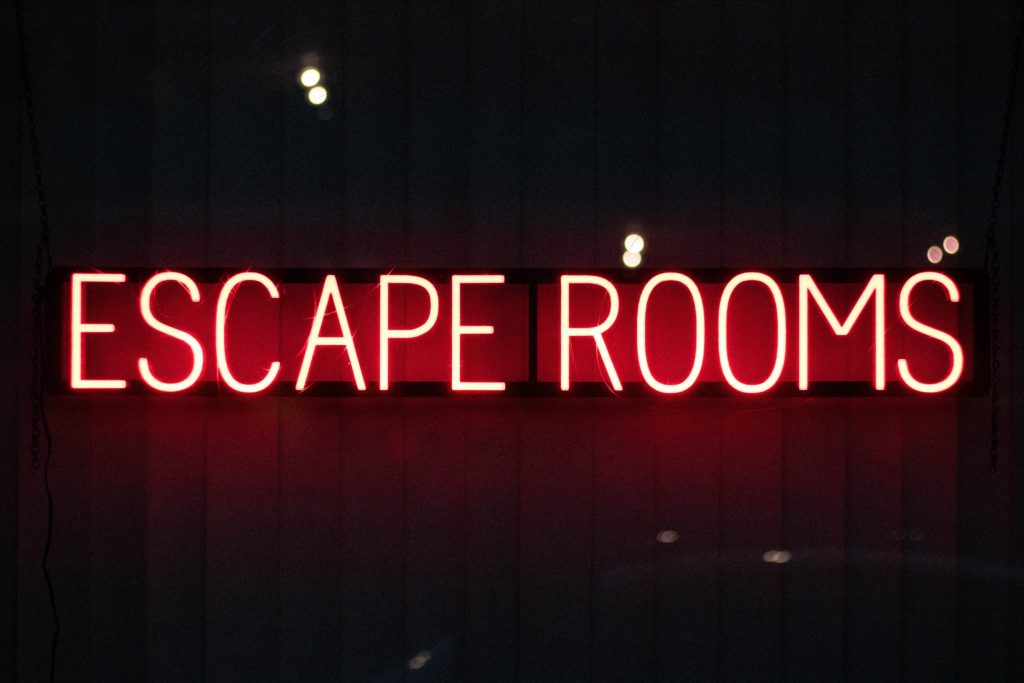Escape rooms History
By iED
Escape rooms have been around since the early 2000 and they have been growing more and more popular as time goes by. They have been a great way to promote collaboration and it is a fact that more and more businesses across Europe and the world have been using them to enhance the collaborative spirit of employees.
Where it all begun
The history of escape rooms or escape games starts in 2003 in GenCon Indy in Indianapolis, a convention that brings together people from across the US who love table-top games. There a concept that resembles the modern concept of escape rooms, The Dungeon, was created by game-designer Jeff Martin. The dungeon had many of the elements that are essential for escape rooms as it focused on problem-solving, teamwork, and tactics to be solved.
Four years after that, in 2007 Japanese game developer Takao Kato created the Real Escape Game (REG) the first in a line of many. That first escape room was influenced by a series of video games called “Escape Games” in which players solve mysteries and interact with various characters aiming to escape the rooms and move on to the next level. Soon the games started moving to other countries in Asia with China founding the Beijing Takagism in 2012.
First escape rooms in Europe
The games took off with the first escape room appearing in Europe, in Budapest Hungary. Parapark, the company that developed the very first escape rooms in Europe was considered a pioneer for the Western World, seeing as its owner, Attila Gyurkovics claimed he had no knowledge of these games already existing in Asia and that he thought of the concept on his own.
While Hint Hunt, the Hungarian concept started to grow, SCRAP, Takao Kato’s Japanese company had already been spreading. It made its first appearance in Australia and Singapore in 2011. In 2012 the first escape rooms start to appear in San Francisco by Japanese entrepreneur Kazuya Iwata
Escape rooms arrive in America
In 2013 American businessman Nate Martin creates the first all American Seattle-based room, Puzzle Break. The difference between the American and Asian escape rooms was clear. The Japanese rooms were more focused on logical puzzle solving, mathematical sequences, and color-coding puzzles much like the original video games. There, competition is a major factor for the game.
In Europe and America on the other hand, we notice that although the concept remains the same, puzzle-solving is still a primary element, customers are more interested in the immersive experience and cooperation other than competing against each other.
The connection with Science
The concept could not of course escape the keen eye of science. In 2012 a Swiss physics professor creates the very first escape room with a scientific focus, for his students. It was different from others seeing as it no longer used logical puzzles but mostly scientific ones such as polarized codes, hidden or infrared puzzles.
The room itself gained massive popularity and was later on given to the public under the name of AdventureRooms. Soon it took off as a franchise and sold to more than 20 countries across the globe.
From simple puzzles that could be solved with a pen and a paper to automation technology, immersive decoration, and a much more sophisticated storyline, escape rooms are now becoming one of the world’s leaders in the entertainment industry.
A fast-growing industry
According to the 2019 statistics more than 50.000 escape rooms exist on a worldwide scale generating a profit of $25-30 per person for one hour, in parties of 4-5 people per room.
They are now being used for multiple purposes. From young people having fun working together to solve puzzles all the way to companies that use them to promote teamwork and collaboration among their employees.
The significance of the industry has not gone unnoticed by officials. Through programs like the ER-SE: Escape Rooms for Social Entrepreneurship, the EU is allocating funding to create more innovative rooms that can help enhance entrepreneurship, teamwork, and the labor market.
The results of these projects and the training materials are free for all interested parties through the projects’ websites. If you are interested in learning more about escape rooms feel free to check that material out and do your own research on escape rooms close to you. They are an experience you will want to have at least once in your life!
